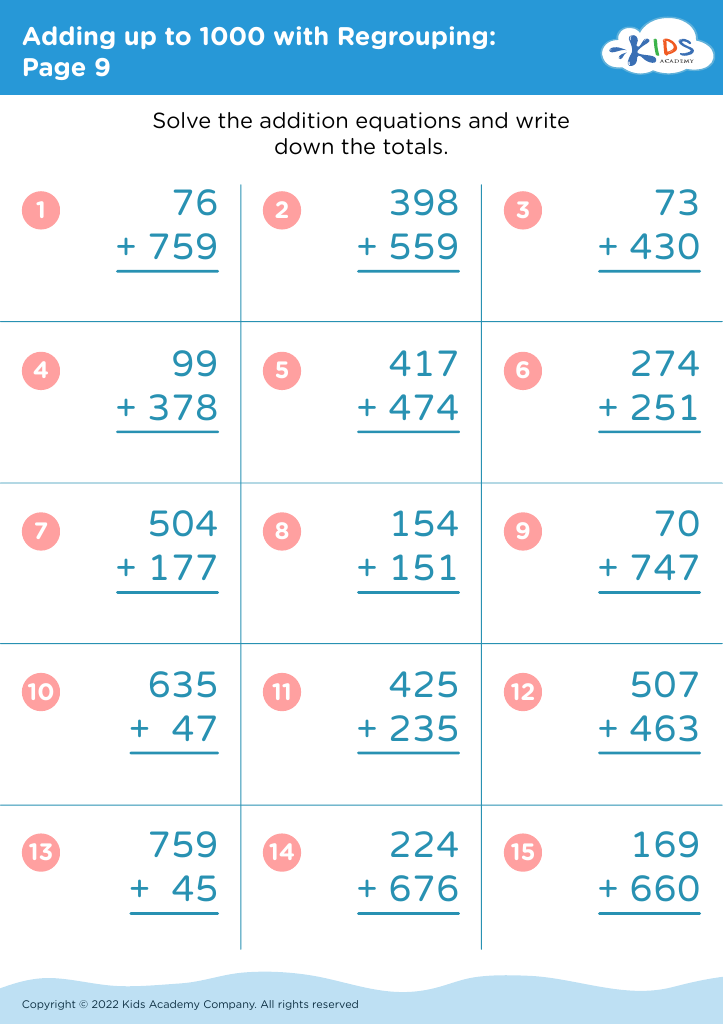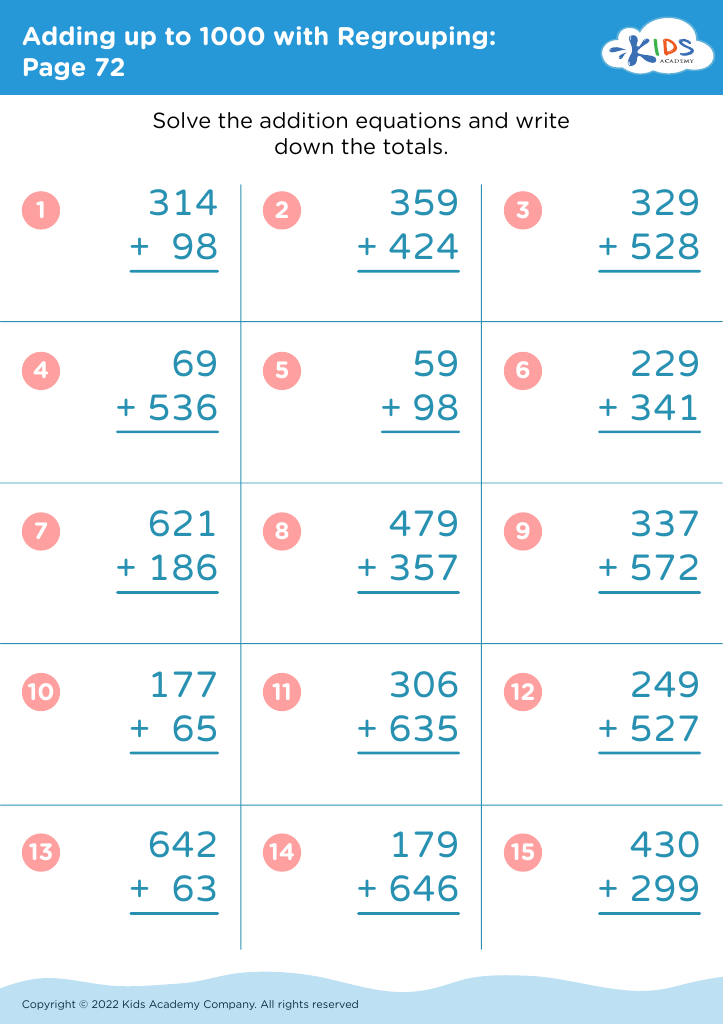Understanding directions Addition Worksheets for 7-Year-Olds
3 filtered results
-
From - To
Enhance your 7-year-old's math skills with our "Understanding Directions Addition Worksheets." Designed to make learning fun and engaging, these worksheets focus on teaching children how to follow directions while practicing addition. Kids will gain confidence as they complete tasks, follow instructions, and solve addition problems that reinforce their comprehension and critical thinking skills. Our resources cater to various learning styles, ensuring every child can thrive in mathematics. Perfect for classroom activities or at-home practice, these worksheets provide an effective way for young learners to develop their problem-solving abilities and mathematical understanding. Start building your child's math confidence today!
Understanding directions in addition is a crucial skill for 7-year-olds that lays the foundation for their future academic success. At this age, children are not just learning the mechanics of adding numbers; they are also developing critical thinking and problem-solving skills essential for higher-level math and other subjects. When parents or teachers emphasize understanding directions in addition, they empower children to comprehend tasks, which enhances their overall learning ability.
Additionally, clear comprehension of directions fosters independence and confidence. A child who isn’t simply memorizing but truly grasping how to solve addition problems is better equipped to tackle more complex mathematical concepts later on. Moreover, it encourages an inquiry-based approach, where children feel safe to ask questions and explore different methods for solving problems.
Furthermore, learning to follow directions helps in nurturing attention to detail, an essential life skill that transcends academics. By strengthening these foundational skills, parents and teachers can better prepare children for future challenges, both in and out of the classroom. Ultimately, developing a solid understanding of addition directions can significantly impact a child's attitude toward learning and their ability to engage with new concepts effectively.



















